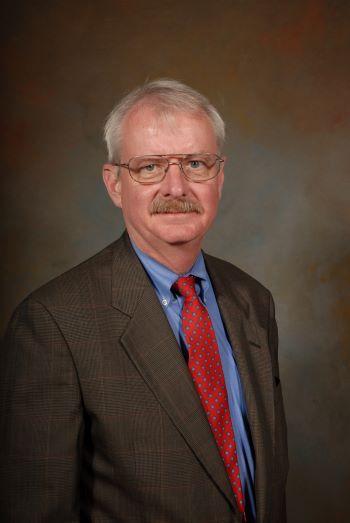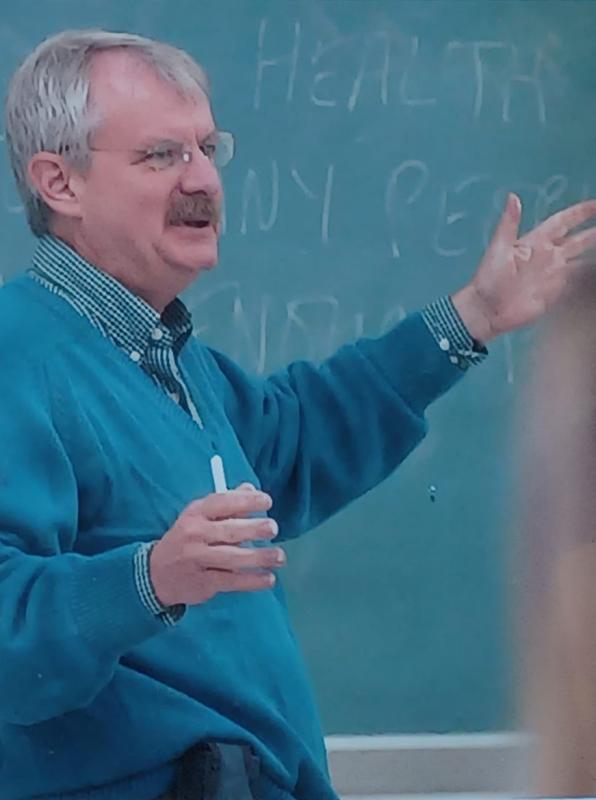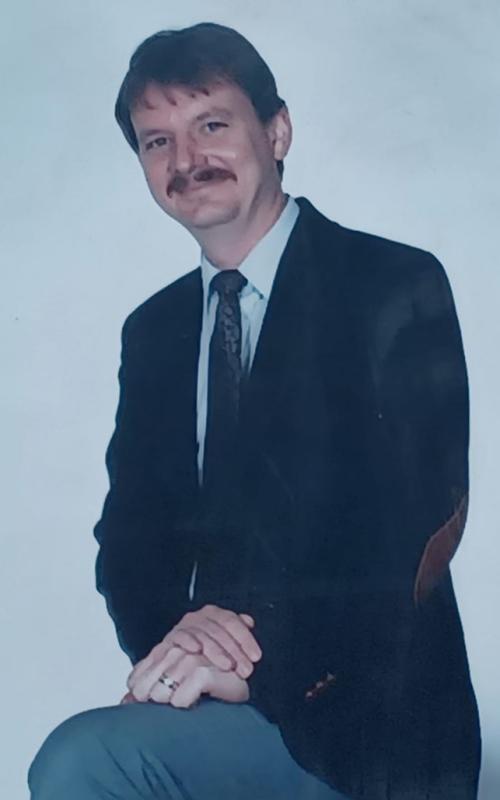In Memoriam: Dr. Joseph Stewart
As a member of Clemson's faculty since 2005, the passing of Joe Stewart in 2023, personally and academically affected the Political Science Department here at Clemson University. Dr. Stewart was a valued mentor, colleague and personal friend to those he interacted with at Clemson and beyond, his legacy includes great kindness and dedication to those he cared for.
Not only is Joe Stewart remembered by friends, family and academic colleagues, but his memory lives on through a Facebook Page titled "I drink in hotel bars with Joe Stewart", which was created originally in 2011 by Keith Gaddie. This page is an homage to Joe's careeer and personal connections made through Political Science, the "about" section of the group states that "If you're a political scientist, you have not really arrived in the profession until you've sat and had a lobby bar drink with Prof. Joe Stewart." For more than 12 years now, this Facebook page has admired Joe Stewart, and provides a great way for those who cared for Joe perosnally and academically to connect even after his passing in 2023.
Now, the page informs those who cared for Joe about awards and accolades he has received in memoriam. One example of this is the Dr. Maritn Luther King Recognition Award from Clemson accepted on his behalf by his family. He also received the distinguished title of "Professor Emeritus of Political Science" in April of 2024.
Joe Stewart's legacy at Clemson will gone on in the "Joseph E. Stewart, Jr. Memorial Scholarship" for the sum of $25,000. The award is in the works and donations are being accepted here or by scanning the QR code with your phone's camera to the left.
"Joe Stewart is a Prince" by Dr. Jim Riddlesperger
was unassuming. He tended to see humor in everything, sometimes when others of more
serious bearing found his humor inappropriate. He was immensely talented, producing
insightful and important research, though not at the rate that critics might ascribe to top
members of the discipline. Yet, Joe was a prince.
He never met a stranger. More importantly, when he met someone a second time, he not only
remembered their name, but immediately took them in as a sibling. Having no sibling of his
own, Joe looked for ways to wish the very best for his “chosen” family members, to root with
empathy for their success, and to place them in a position where they might succeed. Joe took
immense satisfaction from the success of those he had adopted as friends.
Joe’s passion was for human rights and the dignity of all people. A native of the South, Joe
hated the legacy of racism and inequality. And he developed a passion for a vision of a nation
where the content of people’s character was all that mattered in measuring their worth. He
took seriously the question that became the title of his co-authored book Can We All Get
Along?
Joe was an educator by choice and by nature. He had a love of seeing his charges go far in life
and took great pride in his “chosen” children, having no biological offspring of his own. His
lecture style was understated and conversational, displaying an infectious depth of curiosity
about human political behavior. And he took that beyond the classroom into a commitment to
sponsor quality education through the Advanced Placement program of the College Board and
Educational Testing Service and through the We the People program.
Of course, Joe had a legendary sense of humor, an outward expression of Joe’s optimism about
human nature. He and his colleague Ken Meier gave great comedy and parody of academia to
their article “Rotisserie Political Science.” And he sponsored a memorable panel at an academic
conference on the impact of Elvis Presley on political science. But Joe’s humor was one of true
delight in the human condition, never intended to disparage, but rather to uplift.
Joe’s premature death should be noted, though he would never want to draw attention to
himself. He often remarked that he had gotten more from life than he ever thought he
would—earned a salary higher than he ever thought possible and worked in air-conditioning
rather than on top of a roof somewhere. He would insist that we raise a glass and offer an
inappropriate expression of humor in his memory. And to do all we can to rectify injustice in
the world, mostly by connecting one to another at every opportunity along the way.



